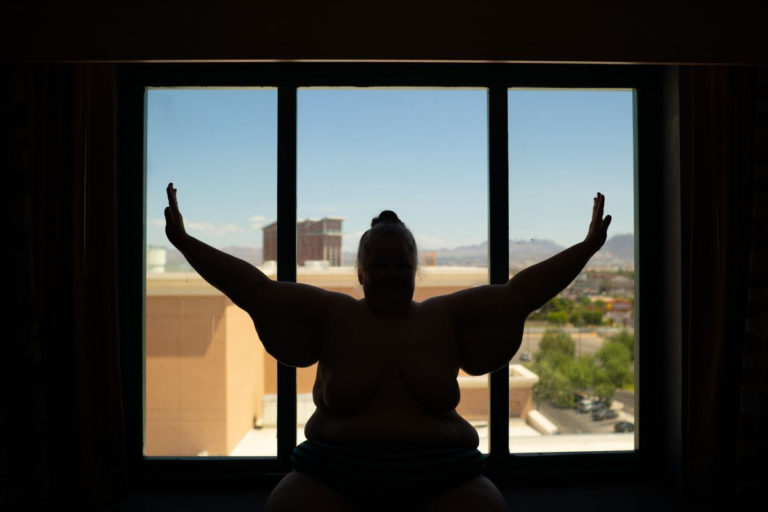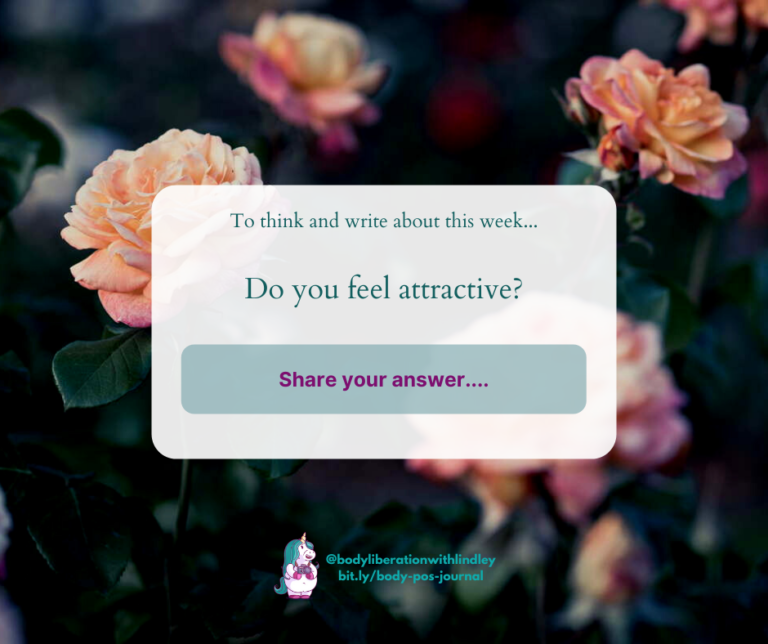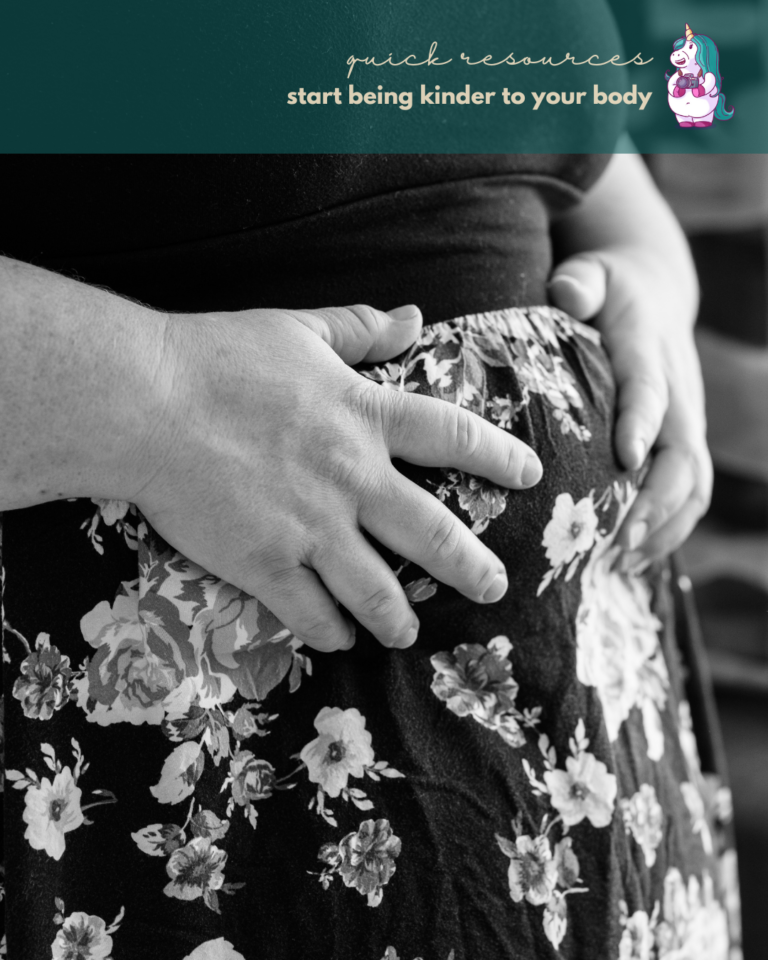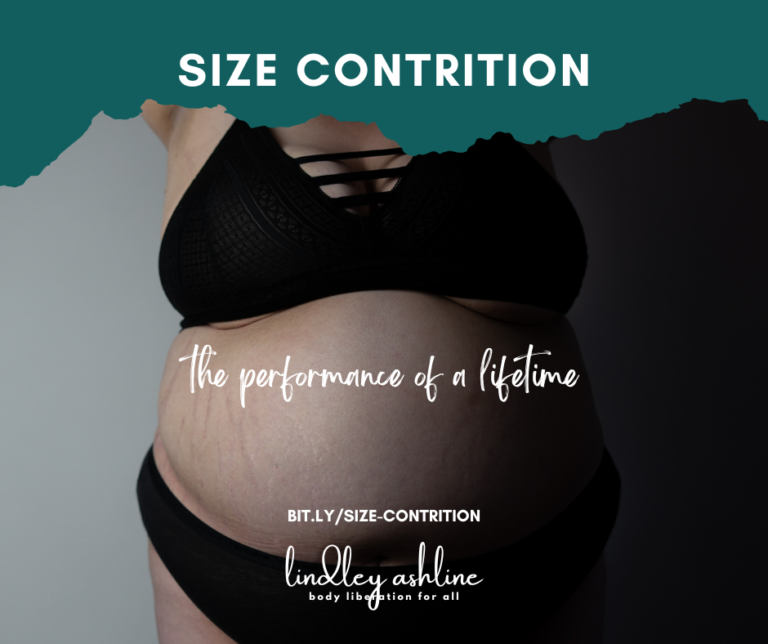This week’s letter describes open bigotry and fatphobia in a medical and healthcare treatment setting. Please protect yourself as needed.
We’re revisiting a letter from 2020, because absolutely nothing has changed.
“As I sit across from my 5′ 8” 350-pound client, I am filled with discomfort and fear. In the grip of my terror, I want to fix her, to make her healthy and to protect her from our vicious fat phobic culture. I am aware of my anxiety as I fidget in my chair. Staying present is difficult. I find myself wrestling with two thoughts. I want to empower her, “Go out there and live your life to the fullest,” and I want to heal her, “Why aren’t you taking care of yourself?”
– Harin Feibish, a grown-ass professional who has somehow been allowed to have contact with fat people
Last weekend, I learned one of the reasons there is such rampant fatphobia and fat hatred in healthcare. You can google “Yalom and Betty” and learn for yourself if you’d like, but I highly advise that you don’t. I won’t link or even describe it here, except to say this:
- Yalom is emeritus professor of psychiatry at Stanford University.
- His fatphobia goes beyond vile into body terrorism.
- He once treated a woman named Betty and describes her, in his book, in the most hateful terms possible.
- His book is required school reading for psychologists, psychiatrists and therapists.
- This man is widely respected in his industry.
Healthcare providers are being indoctrinated with hatred before they even leave school, on top of the naked fear and loathing our culture provides as a lifelong education in how fat folks should be viewed and treated.
Some providers are able to keep these quiet parts quiet. Others say them out loud.
In July 2020, the Renfrew Center, a chain of eating disorder treatment centers, included a
horrifyingly fatphobic article [PDF] titled “In The Grip Of Hunger: Large Women and Their Therapists” by Harin Feibish, LCSW. I’m honestly so taken aback by a therapist willing to say the quiet parts out loud like this that I’ve got nothing as far as a thoughtful, detailed response. Right now it looks more like a primal scream.
» Just to emphasize: This piece was written by a credentialed professional, and her workplace thought highly enough of it to publish it as an official, approved viewpoint. Twice.
» This is not a new article. A colleague of Feibish’s claims it was written in the 1990s, and the introduction to the newsletter makes it clear that the article is being reprinted. Which means that not only was this considered okay to publish, not once, but twice (presumably with updates, unless Feibish had been already practicing for 40 years in the 1990s), it’s clear that neither Renfrew nor Feibish have overcome their prejudice enough to realize how wildly harmful and inappropriate this is.
» Though this was published in a publicly-accessible newsletter, it was clearly never intended to be seen outside provider spheres. It’s clear that neither Feibish or Renfew thought about or cared about the impact this would have on other providers — especially other providers in fat bodies — or on patients, prospective patients or members of the public who live in these despised bodies.
» Pro tip: “Taking care of yourself” is always, always code for pursuing intentional weight loss. In other words, dieting. An eating disorder treatment specialist is openly wondering why her fat client isn’t dieting.
» I’m going to do Feibish the favor of assuming that she wasn’t the one who diagnosed this patient with binge eating disorder and that the diagnosis is correct. Why am I giving her the benefit of the doubt on this? Because many, many fat folks with eating disorders are misdiagnosed with BED purely due to body size. Fatness itself is not an eating disorder, many fat folks who do have eating disorders do not have BED, and people in smaller bodies also have BED.
» Various people in thin bodies have been responding to this piece with, “I appreciate her honesty.” How would you appreciate her honesty if you lived in a body so loathed that people need to do grounding exercises when you walk in the room? The only people who should be exposed to Feibish’s honest feelings on fat are her supervisor and therapist.
» Many patients at eating disorder treatment centers in the U.S. pay out of pocket for treatment. Roberta may have been paying tens of thousands of dollars to be treated this way.
» We’re not stupid. We can tell when you’re uncomfortable with our bodies, and we can certainly tell when you’re so disgusted you can hardly be in the same room with us.
» Is it any wonder that people who live in a world that treats them like this will amputate perfectly healthy organs (i.e., have weight-loss surgery) so that they might one day be treated like humans?
» Listing the height and exact weight of a person as the first thing you see is an excellent way to encourage readers, many of whom can’t even visualize what 350 pounds looks like, to dehumanize this person right off the bat. (Also, since 350-pound patients are vanishingly rare in ED treatment — we can’t even get diagnosed most of the time — how anonymous is this client, really? Not very.)
» There is already harm being done by Renfrew’s publication of this article. Fat people I know who’ve seen it have said that they’re now even more hesitant to seek healthcare of any kind, knowing that not only will most of their providers think this way about them, but it’s even considered acceptable to say so right out loud.
» Can you imagine sitting in a room where a trained healthcare provider with a degree has to do grounding exercises to conceal her loathing of you? Can you imagine never knowing when you’ll encounter this, but knowing it will be often? Can you imagine encountering this when you are at your lowest and most vulnerable, and are seeking mental healthcare treatment? Can you imagine encountering this every day of your life?
» The author of this piece apparently did Renfrew’s ““body image” programming and was regularly allowed and encouraged to be around fat folks. (She is no longer with Renfrew today, but is in private practice.) People she’s physically, viscerally terrified of. After 40 years of practice.
You can read Feibish’s piece
over on the blog (scroll down, and again, content warnings of all kinds apply).
As you think about this, it’s easy to be horrified and think Feibish is one bad apple, but I’d like you to consider how common these attitudes are and how often fat folks come into contact with people like Feibish.
How might that change how you experience the world? How might it change your willingness to pursue needed healthcare? How might it change your outlook and self-esteem?









